At This Kerala Farm, You Can Weave Your Clothes And Grow Your Food For Free
'Farmer’s Share' is also a centre for learning, where children and adults can learn practical life skills like farming, weaving, construction, pottery and associated crafts.
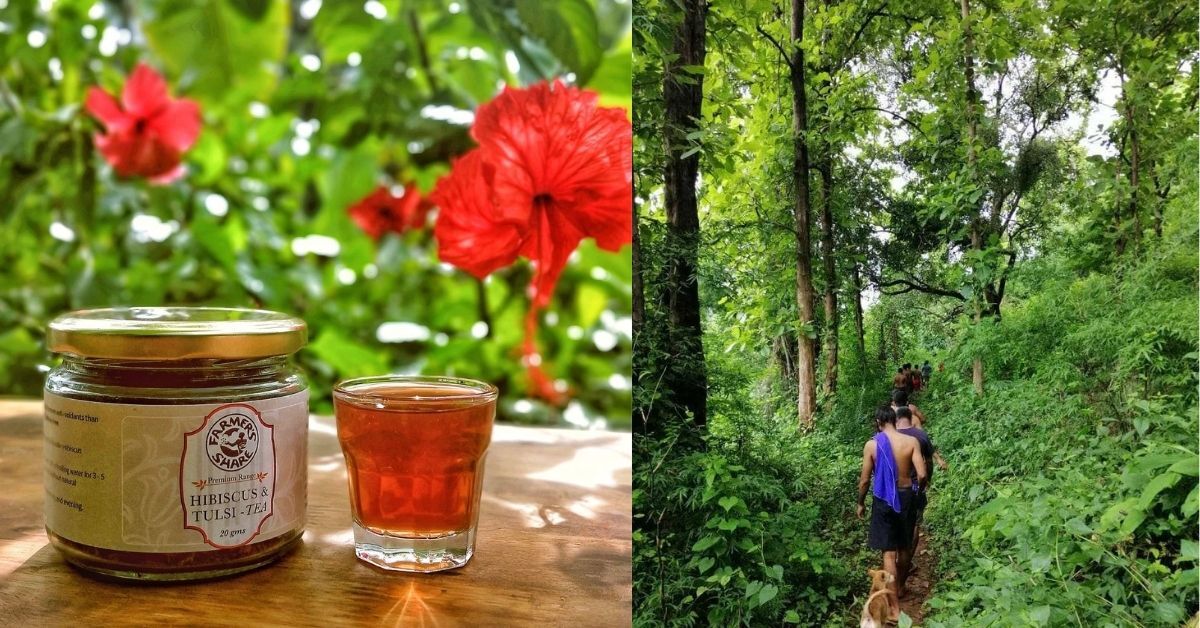
W hen you step into Farmer’s Share, Ambrose Kooliyath’s organic farm and craft centre on the outskirts of Shornur,Kerala you immediately feel a sense of calm. A few women are occupied with working the looms at the Khadi weaving unit, while the heady aroma of butter emanates from the kitchen and warehouse.
Here, cookies are being baked in unconventional flavours like curry leaf and moringa leaf, which taste heavenly.
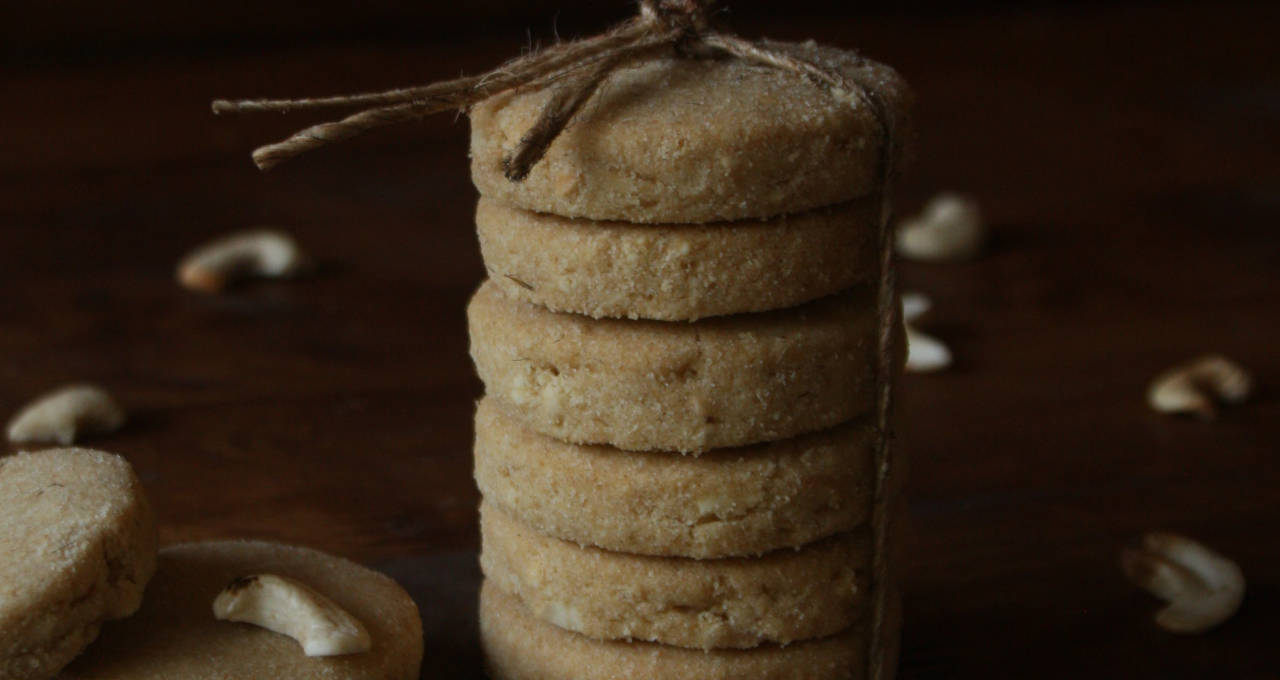
The centre’s pottery unit’s talents are displayed via terracotta pots with different kinds of hanging and flowering plants. Hibiscus bushes surround the area, with carpets of red flowers laid out in the sun to dry. A worker gathers a batch of colourful sun-dried leaves and flowers, which will be used to make dye. Adorable indie dogs run around — their occasional barking, and the splashing of fish in the irrigation pond are the only sounds that break the silence in this part of the farm. Walk further, and you enter the woods, and finally the Nila River.
Unable to view the above button? Click here
Ambrose’s wife Mini Elizabeth, their two sons Amal and Akhil, and a few teenagers staying on the farm to learn and help, go about their duties quietly. Twenty-year-old Amal designs the orders at the handweaving unit with his friend Rashid, while 18-year-old Akhil designs the terracotta cookware and planters.
On his philosophy in life, Ambrose says, “The essence of it all is the Gandhian concept of self-sufficiency and self-reliance. His idea of a just society is one where the basic needs of a person — food, clothing and shelter, are met with products sourced from within one’s locality, and not imported from outside. The farm is an attempt at that.”
“There was a time when families survived on the produce from their compound and made houses using locally available material. Now, for every morsel of food, every household item or piece of clothing, we’re dependent completely on the market and international brands. Kerala currently imports more than 80 per cent of the rice it needs from other states,” he adds.
Farmer’s Share is also a centre for learning, where children and adults can learn practical life skills like farming, weaving, construction, pottery and associated crafts.
‘There is no school that teaches children such farm skills’
One may wonder why the youngsters on the farm are not in school on a weekday morning. However, Ambrose’s two sons have never attended school, or been homeschooled. “We might be 100 per cent literate in Kerala, but how many know how to grow their own food or build a house for themselves? There is no school or education system that teaches children such basic life skills either,” Ambrose says. That, he adds, is precisely why he decided to teach his children such skills instead of sending them to conventional schools.
Read More: Maharashtra Man Quits Steady Job To Farm Figs, Has Turnover of Rs 1.5 Crore/Year
“I’m continuously bombarded with queries about my children’s future. But this is not an alternative education model. I just moved my kids away from a system which churns out education aimed at a particular “respectable” set of professions that consider all else below their dignity,” he says.
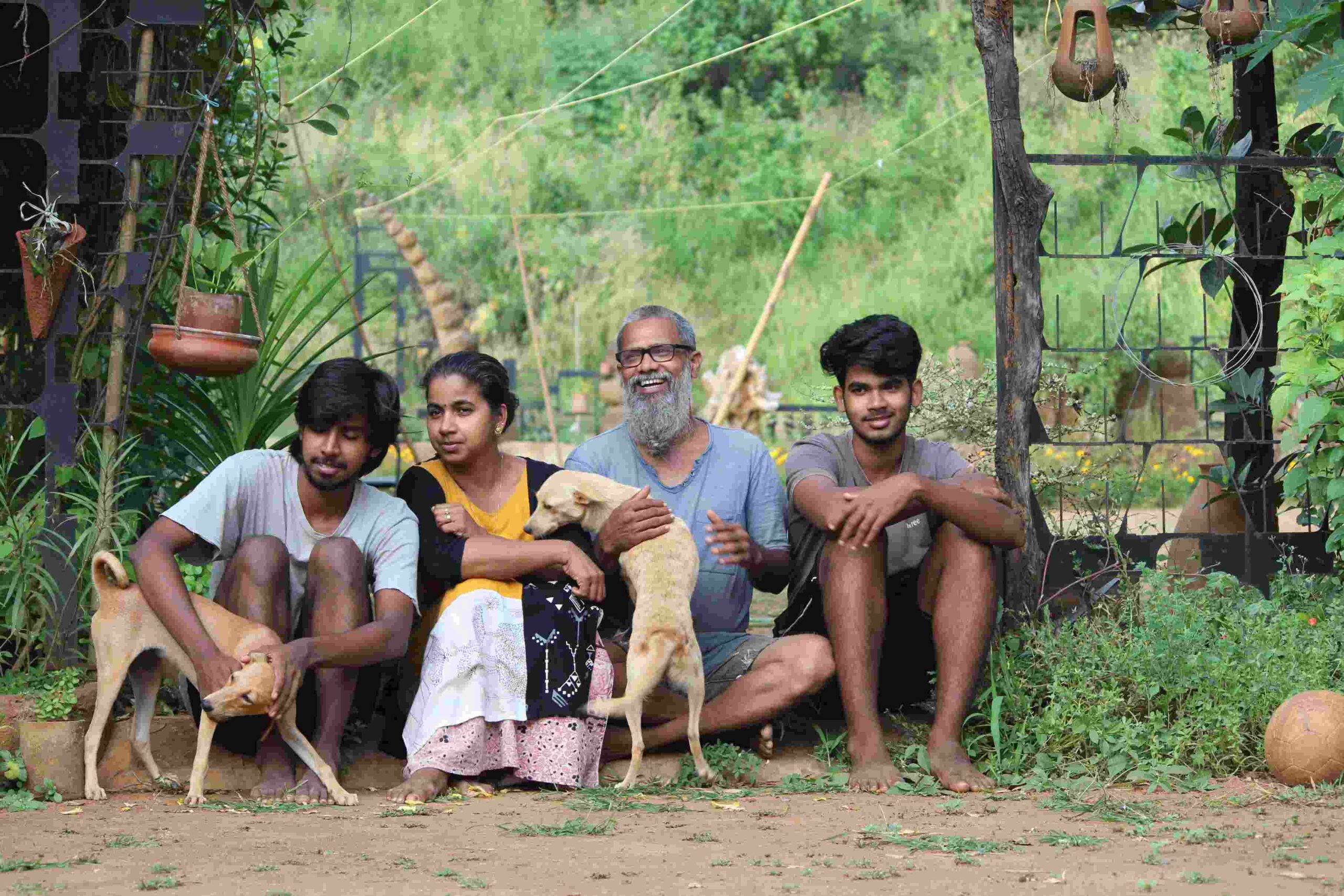
He quickly adds that he is well aware that total self-sufficiency and self-reliance is impossible in the current circumstances, and he only does what he can. “I’m not saying everyone should grow their own rice and weave their own clothes. But we should try and see why a farmer doesn’t want his son to follow in his steps. Because he is not given a fair price for his produce, neither is he allowed to set one. In our farm, we sell our own produce, and associate with neighbourhood farmers and help them sell their products at a fair price,” he says.
‘It’s their right, not charity’
The focus of the food section is hibiscus products — tea, concentrate, jam, honey and dye. The reason behind this, Ambrose says, is because hibiscus is native to their state. “It grows easily, with least chances of pest attacks. The same goes for tulsi. These are rich in Vitamin C and have plenty of other health benefits. Also, corporates have taken over our mountains for tea estates. Why depend on a market for a cup of tea when you can grow your own in your garden?” he asks.
The property also has plenty of jackfruits, mango and plantain trees, the produce of which are used to make daily meals for the residents. “The idea is that nothing should go to waste. Everything is available in plenty in the markets, which is why people throw away anything which looks less than perfect. We utilise each and every edible part of the vegetables, fruits and plants, and preserve the rest by pickling, drying and powdering them – even tomato and onion,” Ambrose says.
The hibiscus and trees are planted randomly, and farming is done in such a way that birds and squirrels are allowed to eat first. “It’s their right, not charity. The moment one stops expecting a particular amount of yield, things become easy. I make sure to harvest the hibiscus flowers in the evening so the bees can get their share of honey in the morning,” he adds.
While the weaving unit is associated with Khadi, the colouring of the textiles using natural dyes was developed by Ambrose.
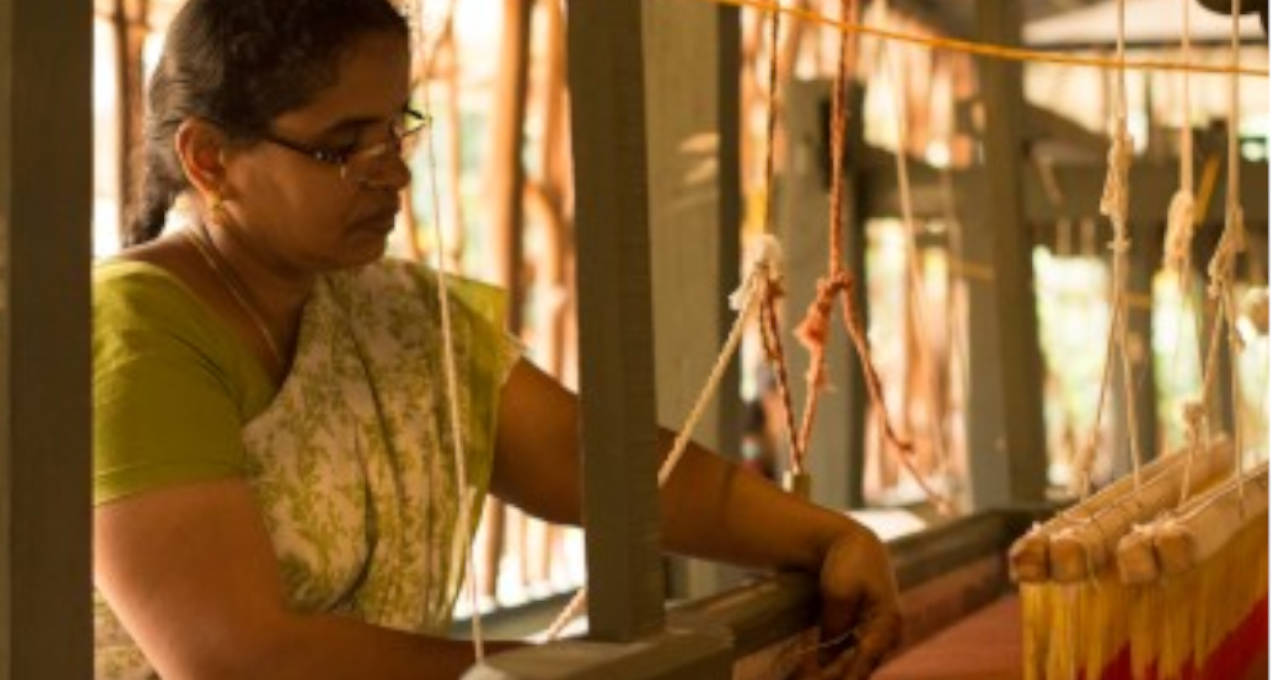
“We use flowers and leaves of hibiscus, rose, turmeric, and also weeds considered useless, like communist pacha, for the dyes.”
Ambrose himself is the engineer and architect of all the buildings in the property. Materials used include earth, sawdust, stones and bamboo sourced from the neighbourhood.
An entire cabin for visitors has been made with left-over wood from a guitar manufacturing unit, while the roof of an outdoor hut is thatched with dried river grass from the nearby area of Bharathappuzha.
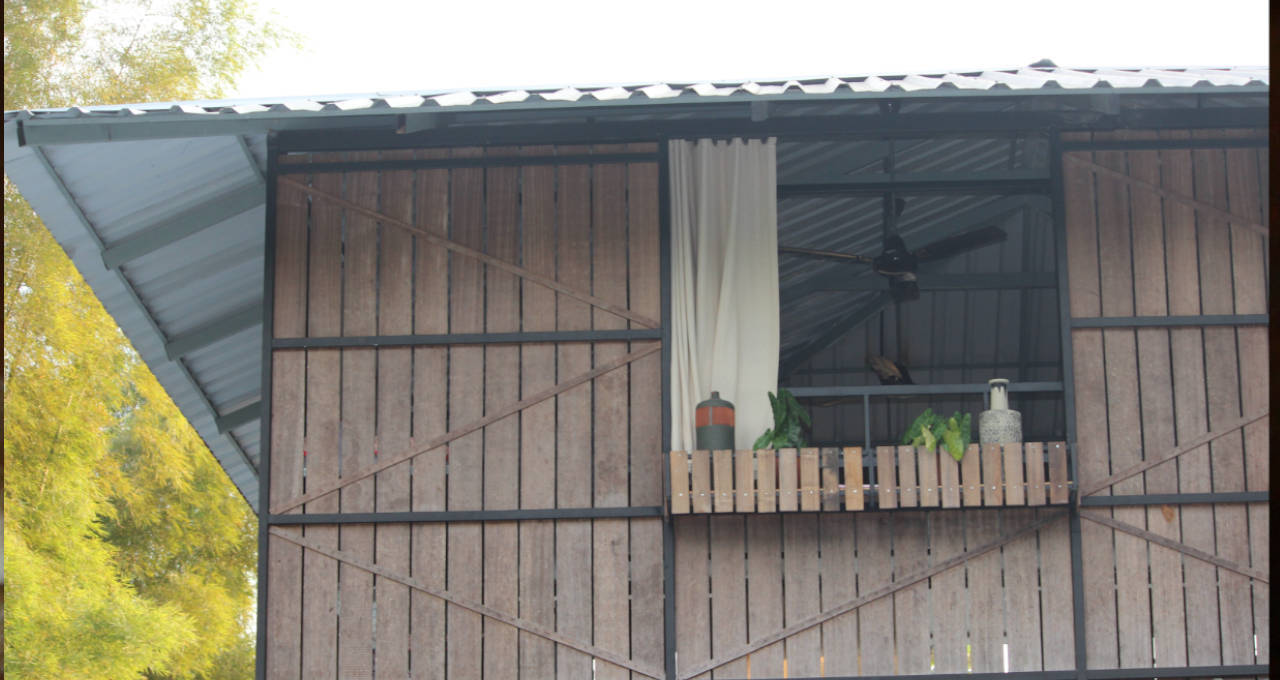
‘Why I left it all to launch Farmer’s Share Farm three years ago’
“I am basically a stonemason. I had to leave school to work in construction at the age of 15, to support my family,” Ambrose, who is a native of Vypin in Kochi, says. However, those seven years working as a mason helped him with all his craft ventures, he says. “Technically, I’m a school dropout. But my confidence comes from my knowledge and ability to build a house for myself.”
The turning point in his life came when he joined a Gandhian movement named Swashraya Vypin at the age of 22, “I learnt about the possibilities of organic farming and food in camps held as part of the movement. Later, I improvised on it and started a minimal investment organic eatery named Grasshopper in Kochi with a few friends. It was part of a tourist home where all kinds of art and culture programmes were held. I met all kinds of people.”
It was the first time Malayalis felt organic food could be tasty as well, and a regular visitor named Manjunath suggested that he and Ambrose collaborate. Together, they started a full-fledged organic restaurant named Lumiere, which ran for 14 years, first in Kochi and later in Bangalore. “It was very fulfilling, but I always wanted to focus on the concept of self-sufficiency; permaculture farming is just one part of such a lifestyle. I wanted to expand the concept of self-sufficiency to all aspects of life, which is why I left it all to launch Farmer’s Share three years ago. I included handweaving and pottery because both are dying fields,” says Ambrose.
The farm is owned by a trust comprising Ambrose, Mini and their friend Manoj Kumar IB, an IT engineer cum organic food enthusiast.
People often ask him about his alternative way of life, but Ambrose can’t understand why he is considered different. “Shouldn’t self-reliance be the norm? During the lockdown, we minimised shopping and treasured every bit of food, because we feared scarcity. Isn’t that how things should be all our lives? I don’t wish to find fault with society, I have immense faith in the power of human beings to change and adapt. But I’m a small man with no great power of influence. I can only send a message through my own life, which is what I’m doing,” he signs off.
(Edited by Divya Sethu)
If you found our stories insightful, informative, or even just enjoyable, we invite you to consider making a voluntary payment to support the work we do at The Better India. Your contribution helps us continue producing quality content that educates, inspires, and drives positive change.
Choose one of the payment options below for your contribution-
By paying for the stories you value, you directly contribute to sustaining our efforts focused on making a difference in the world. Together, let’s ensure that impactful stories continue to be told and shared, enriching lives and communities alike.
Thank you for your support. Here are some frequently asked questions you might find helpful to know why you are contributing?


This story made me
-
97
-
121
-
89
-
167











